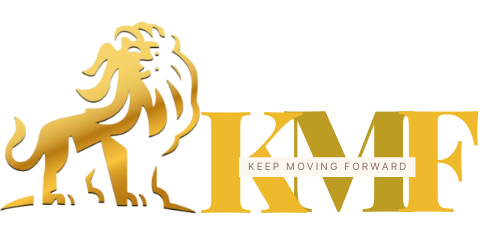- 9825 Marina Blvd #100, Boca Raton, FL 33428
- 561-609-7325
Follow Us :

January 27, 2024

In the world of business sales and acquisitions, one role stands out as critically important: the business broker. Whether you’re a business owner looking to exit, or an entrepreneur seeking to buy an existing company, understanding what a business broker does can make or break your experience. Acting as the middleman between buyer and seller, business brokers bring structure, confidentiality, negotiation expertise, and strategic insight to complex transactions.
This comprehensive guide dives into the responsibilities, qualities, and importance of a business broker, helping you navigate the buying or selling process with clarity and confidence.
A business broker is a licensed professional who facilitates the sale and purchase of small to mid-sized businesses. Their core function is to represent either the seller or buyer, or sometimes both, throughout the transaction process. Much like a real estate agent in property transactions, a business broker helps price the business, markets it confidentially, screens potential buyers, coordinates negotiations, manages due diligence, and ensures legal compliance at closing.
While some brokers specialize in specific industries—such as hospitality, retail, or manufacturing—others handle a diverse range of businesses. Their primary goal is to achieve the best possible outcome for their client while maintaining confidentiality and minimizing disruption to the business.
One of the first tasks a business broker undertakes is determining the fair market value of a business. This includes:
Analyzing financial statements, tax returns, and profit margins
Benchmarking against industry standards and local market trends
Adjusting for intangible assets like goodwill, branding, and customer base
A well-done valuation ensures the asking price is competitive, realistic, and defensible during negotiations and due diligence.
Once the price is set, the broker crafts a confidential marketing strategy to attract qualified buyers. This involves:
Creating a blind business summary or teaser (excluding sensitive info)
Listing on business-for-sale platforms, broker networks, and private databases
Reaching out to pre-screened buyer contacts and investor pools
The broker’s ability to present the opportunity effectively while protecting the business’s identity is crucial in preventing employee turnover or customer loss.
Confidentiality is one of the broker’s most important responsibilities. Brokers ensure:
Prospective buyers sign Non-Disclosure Agreements (NDAs)
Sensitive details (like business name, financials, customer data) are shared only when trust is established
Internal stakeholders, including staff and suppliers, are not alerted prematurely
This discreet approach safeguards business stability during the transition period.
Business brokers are skilled negotiators trained to:
Mediate between buyer and seller interests
Manage expectations, deal terms, and price discussions
Help overcome sticking points in areas like working capital, non-compete clauses, or seller financing
They ensure the deal structure is beneficial and fair to both parties, and that emotional decisions don’t derail the transaction.
Due diligence is where deals often fall apart. A broker ensures both parties are aligned by:
Coordinating access to financial documents, lease agreements, licenses, and HR records
Facilitating communication between attorneys, accountants, and advisors
Guiding both sides through the verification process to prevent surprises
Their oversight helps keep deals on track and timelines realistic.
From Letters of Intent (LOIs) to purchase agreements and escrow instructions, brokers:
Help gather and organize all necessary documents
Work with legal professionals to ensure compliance
Manage deadlines and paperwork to avoid last-minute complications
Though they don’t give legal advice, brokers streamline the process to reduce stress and delay.
At the final stage, business brokers:
Coordinate all closing activities
Ensure final payments, handovers, and legal filings are completed
Provide post-sale support for smooth operational transition
A smooth closing ensures long-term success for both buyer and seller.
A good business broker possesses a combination of technical knowledge and interpersonal skills. Here’s what sets top brokers apart:
They understand the nuances of different sectors, such as inventory valuation, licensing requirements, customer retention strategies, and seasonal fluctuations.
Strong brokers are master negotiators. They know when to push, when to compromise, and how to keep both parties moving toward a deal.
They must clearly convey financial concepts, business models, and legal frameworks to clients who may not have a business background.
Trust is vital. Ethical brokers adhere to professional standards, avoid conflicts of interest, and always prioritize the client’s goals.
No deal is without hurdles. Experienced brokers creatively resolve issues, whether it’s financing delays, buyer cold feet, or regulatory red tape.
Not all brokers offer the same level of service or expertise. Here’s what to consider when hiring one:
Ask about the broker’s recent transactions—industry, size, and complexity. Look for someone who has successfully sold businesses similar to yours.
Request and contact references from previous clients. Were they satisfied? Did the broker deliver results?
An industry-focused broker can better value your business, attract ideal buyers, and navigate specific regulatory hurdles.
A well-connected broker brings buyers to the table faster through existing investor relationships, professional associations, and buyer databases.
Business brokers typically work on a success fee basis, meaning they earn a commission only if the business sells. Standard commission rates range from 8% to 12% of the sale price, depending on business size and complexity. For high-value transactions, some brokers may charge a flat fee or sliding scale.
In some cases, brokers request a retainer fee upfront to cover marketing and preparation costs. All fees should be outlined in a listing agreement before the engagement begins.
Selling or buying a business is a complex, high-stakes endeavor. A skilled business broker not only saves time and stress but also adds measurable value at every stage—from valuation and marketing to negotiation and closing. They bring professionalism, confidentiality, and insight to what could otherwise be an overwhelming process.
Whether you’re preparing to exit a business or invest in one, partnering with a reputable, experienced broker can dramatically increase your chances of a smooth and successful transaction.
Don't navigate the complex world of business transactions alone. Our expert business brokers bring strategy, confidentiality, and negotiation power to every deal. Whether you're planning to sell or searching for the right investment, we're here to guide you every step of the way.
Connect with a Business Broker NowSomething on your mind? Don’t hesitate to unlock the solution